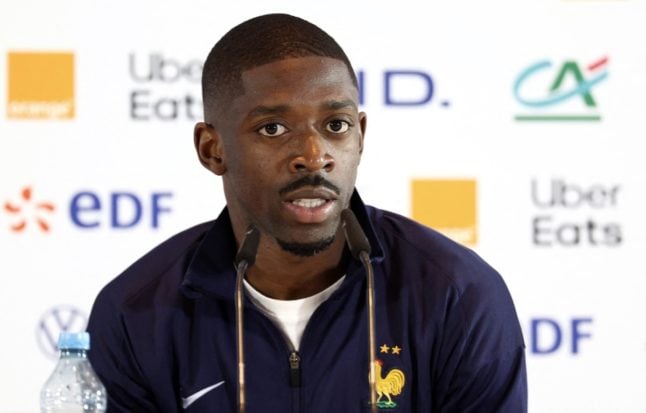“We need to mobilise to get out and vote,” Dembélé told reporters at the French team’s training base in western Germany where they are preparing for their opening European Championship game against Austria on Monday.
“I think the situation in France has set alarm bells ringing. Everyone needs to rally round and come together to vote.”
President Emmanuel Macron has called snap parliamentary elections with the first round set for June 30th and the second round on July 7th.
READ ALSO What do snap parliamentary elections mean for France?
He announced the snap poll last Sunday in response to the results of the EU elections, in which far-right parties — including the top-scoring Rassemblement National (RN) — managed to take almost 40 percent of the vote in France.
“I was watching the news not long ago and I saw that one in every two people in France doesn’t vote, so everyone needs to vote in the legislative elections,” added Dembélé, the former Barcelona winger now playing back in France for Paris Saint-Germain.
The French squad will still be in Germany at the time of the election, provided they make it beyond the group stage.
The first round of the election is set to take place the same weekend as the last 16 of Euro 2024, while the second round comes just after the quarter-finals.
However, Dembélé said the French Football Federation was planning to help players set up a proxy vote if they remained in Germany at the time.



 Please whitelist us to continue reading.
Please whitelist us to continue reading.
Member comments